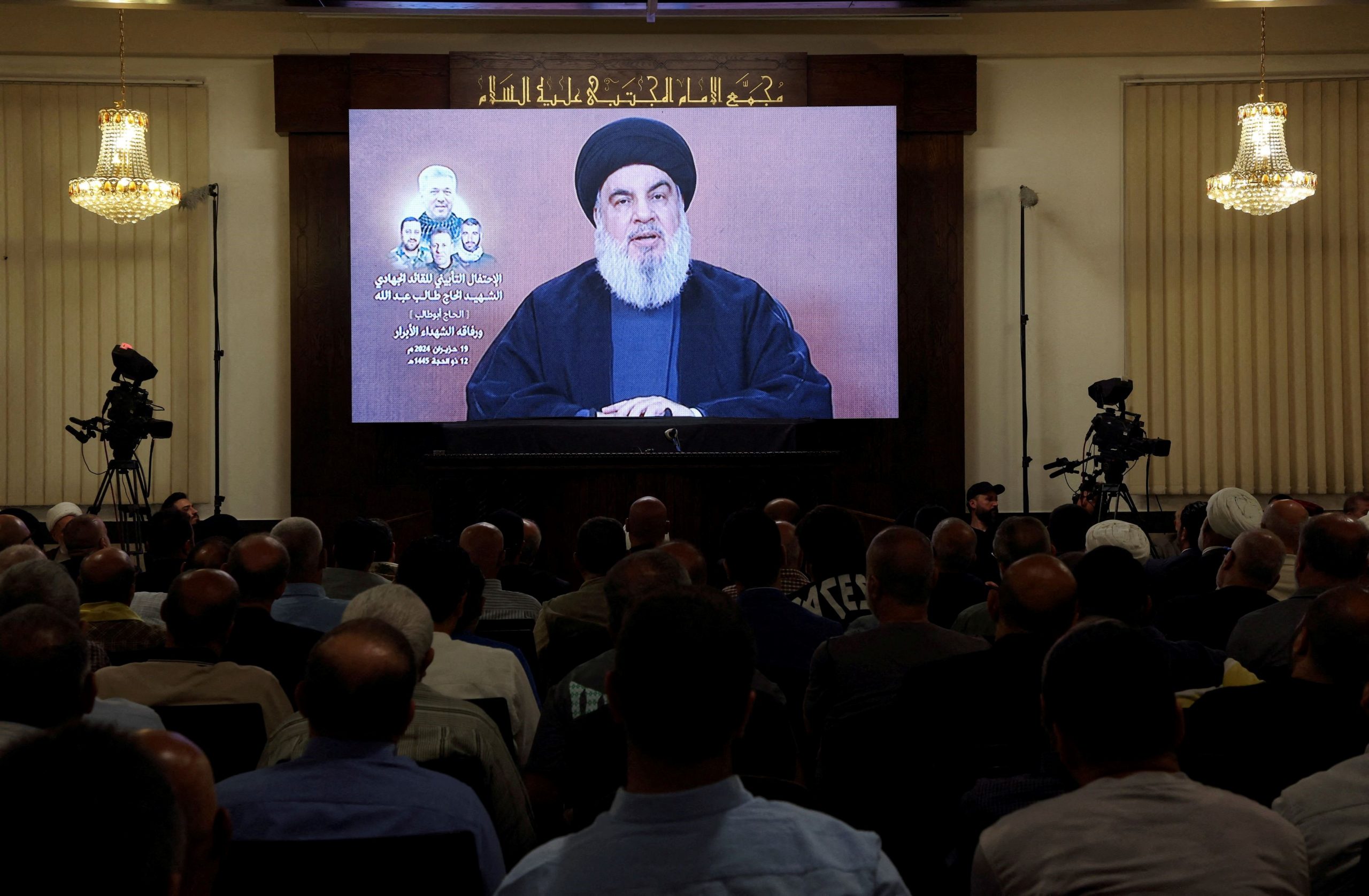Hezbollah chief Sayyed Hassan Nasrallah on Wednesday included the east Mediterranean island republic of Cyprus in his latest bundle of threats aimed at Israel, across Lebanon’s southern border.
The Iran-backed Shia Islamist militant group and extremist political party, firmly based in southern Lebanon, has traded fire with Israel since Hamas terrorists crossed the border early last October to briefly invade southern Israel and engage in a rampage that included the indiscriminate killing of civilians and the taking of hostages.
In a televised address on Wednesday, Nasrallah said “there will be no place safe from our missiles and our drones in Israel in the event of a broader war… (Israel) knows that what also awaits it in the Mediterranean is very big…In the face of a battle of this magnitude, it knows that it must now wait for us on land, in the air, and at sea,” he warned.
In turning to Cyprus, he claimed the EU member-state in closest proximity to Lebanon is allowing Israel to use its airports and bases for military exercises.
“The Cypriot government must be warned that opening Cypriot airports and bases for the Israeli enemy to target Lebanon means that the Cypriot government has become part of the war and the resistance (Hezbollah) will deal with it as part of the war,” Reuters quoted Nasrallah as saying.
Nicosia flatly rejects statement
In a quick response, Cyprus President Nikos Christodoulides underlined that “…It (Cyprus) is not part of the problem, it is part of the solution. That role is evident, for example, through the humanitarian corridor, which has been acknowledged not only by the Arab world, but from the international community,” he said, referring to shipments of aid from Cyprus to Gaza.
According to a Reuters dispatch, sovereign British military bases on the divided island republic have been used by the United Kingdom for operations in Syria in the past, and more recently, in Yemen. The Cyprus government, nevertheless, has no say in the matter, a colonialist vestige of an agreement granting Cyprus independence from Britain in 1960.



